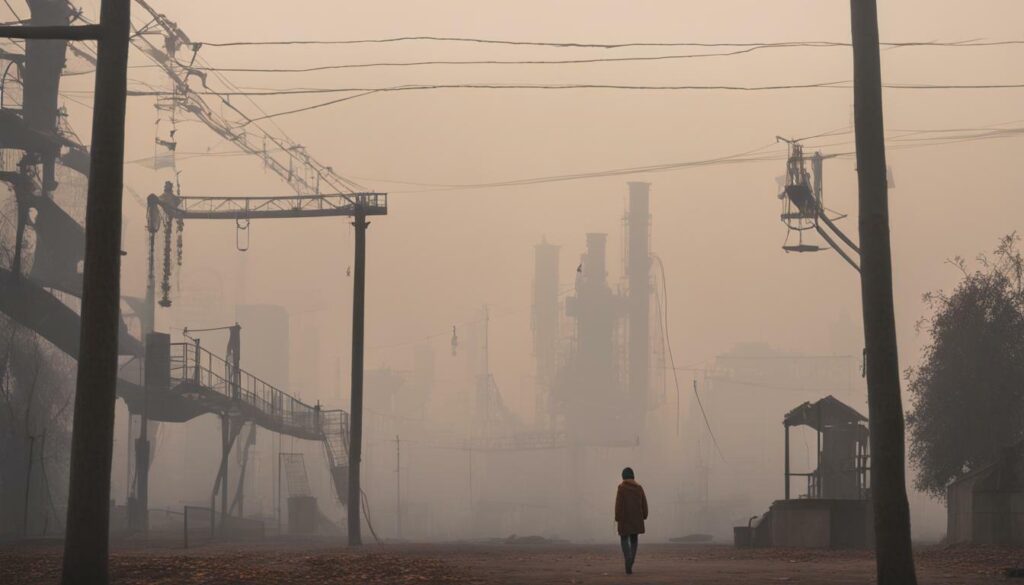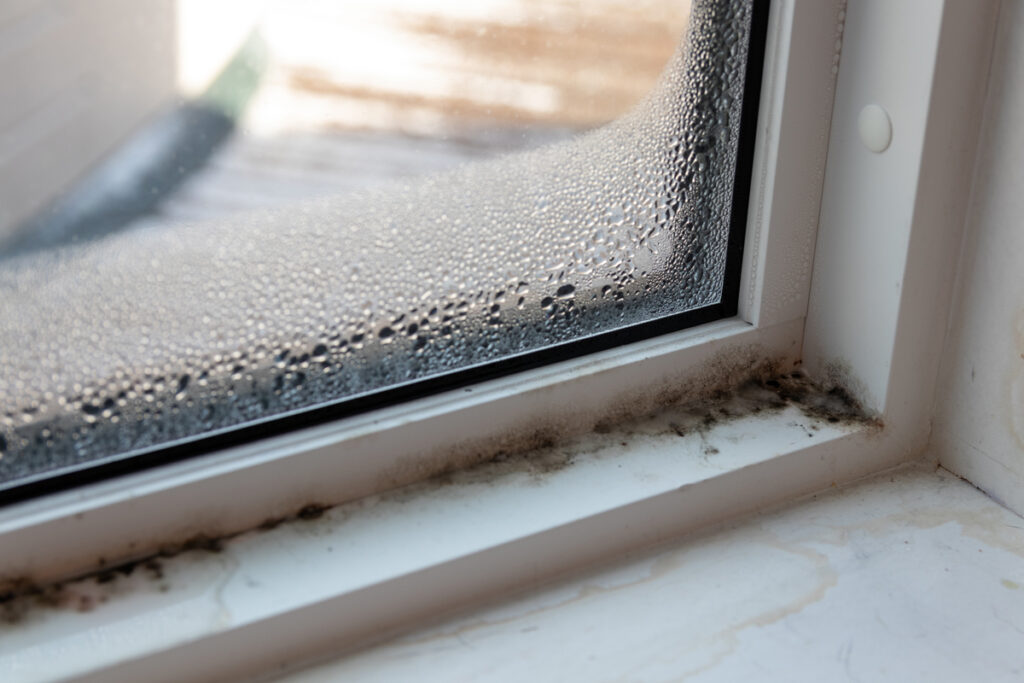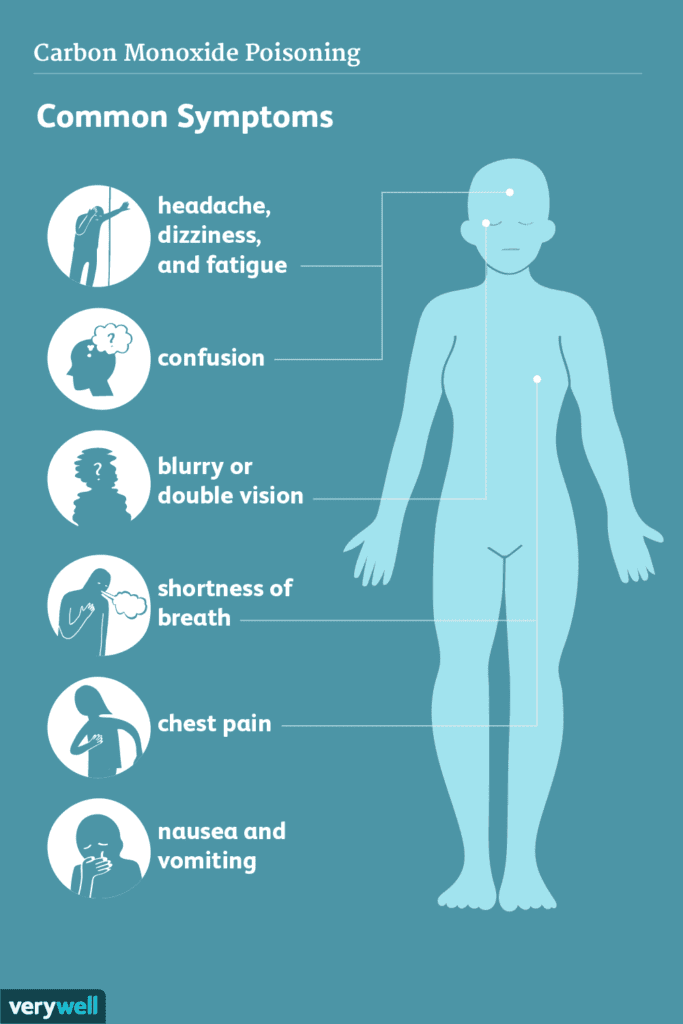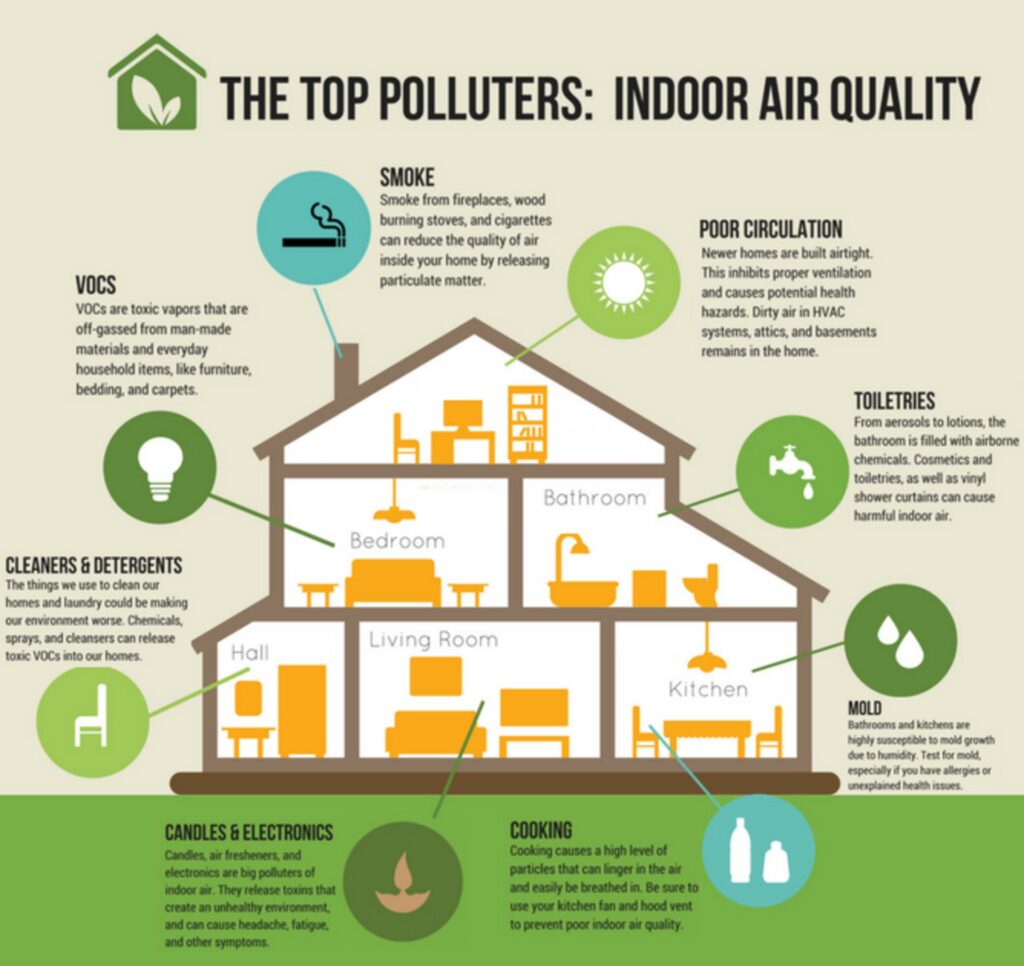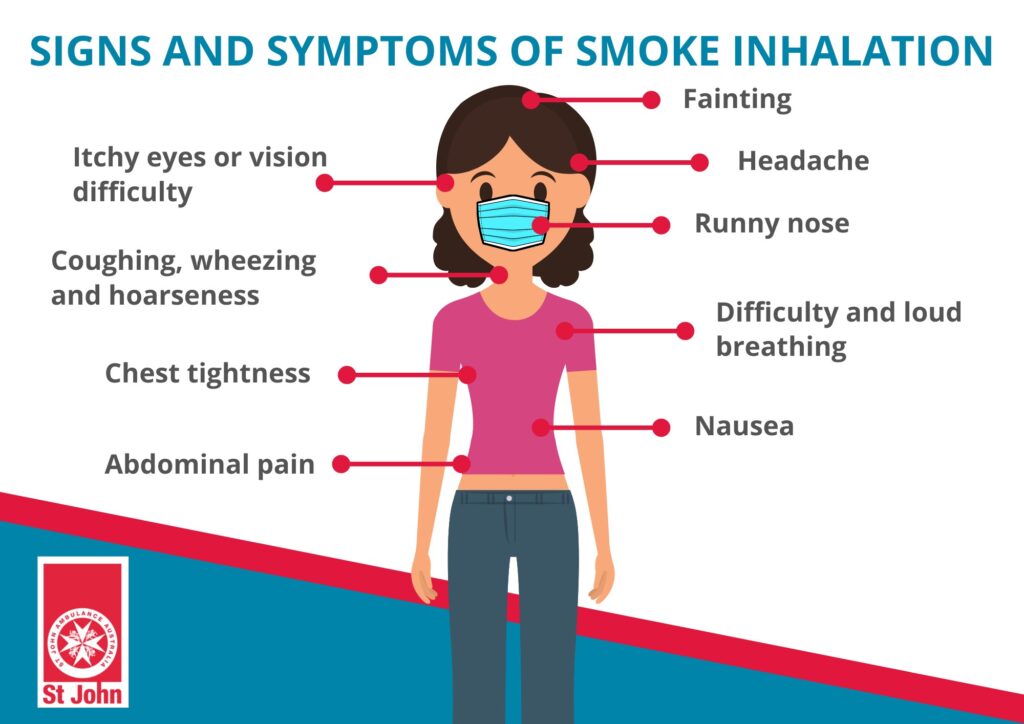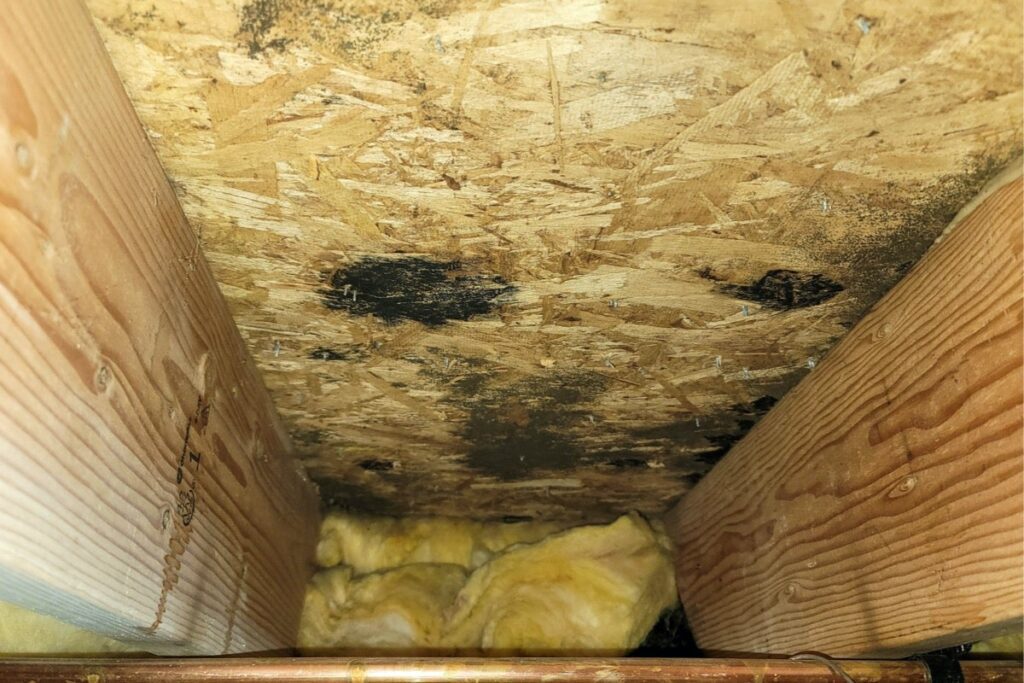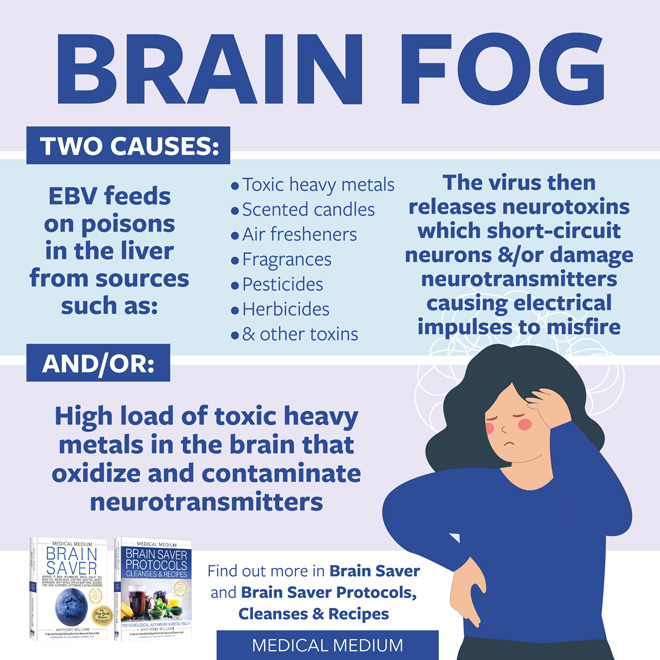If you live in a bustling city or near a busy highway, you may be breathing in poor air quality without even realizing it. But how long does it take for bad air quality to affect your health? The effects of air pollution are not always immediate but can accumulate over time and lead to serious health problems. In this article, we will explore the health risks of poor air quality, the symptoms of breathing polluted air, and the duration of exposure needed to cause harm. We will also provide tips for preventing exposure to air pollution and improving indoor air quality.
Air pollution effects can range from minor irritation of the eyes and nose to more serious respiratory and cardiovascular problems. According to the World Health Organization, air pollution is responsible for an estimated 7 million premature deaths each year. Exposure to poor air quality can also worsen existing health conditions, such as asthma, and increase the risk of lung cancer.
Key Takeaways:
- Bad air quality can accumulate over time and lead to serious health problems.
- Air pollution can cause respiratory and cardiovascular problems and worsen existing health conditions.
- An estimated 7 million premature deaths each year are attributed to air pollution.
The Health Effects of Poor Air Quality
Poor air quality can have significant impacts on your health, both in the short and long term. Short-term effects may include irritation of the eyes, nose, and throat, as well as headaches, dizziness, and fatigue. These symptoms may be particularly pronounced for individuals with existing respiratory or cardiovascular problems, such as asthma or heart disease.
Over time, exposure to polluted air can lead to more serious health problems, including chronic respiratory and cardiovascular diseases, and even lung cancer. It is also associated with higher rates of stroke and other health conditions.
Particularly vulnerable populations, such as children, the elderly, and individuals with pre-existing health conditions, may be more susceptible to the effects of poor air quality.
According to the World Health Organization, air pollution is responsible for an estimated 7 million premature deaths worldwide each year. That’s why it’s so important to understand the health effects of polluted air and take steps to protect yourself and your loved ones.
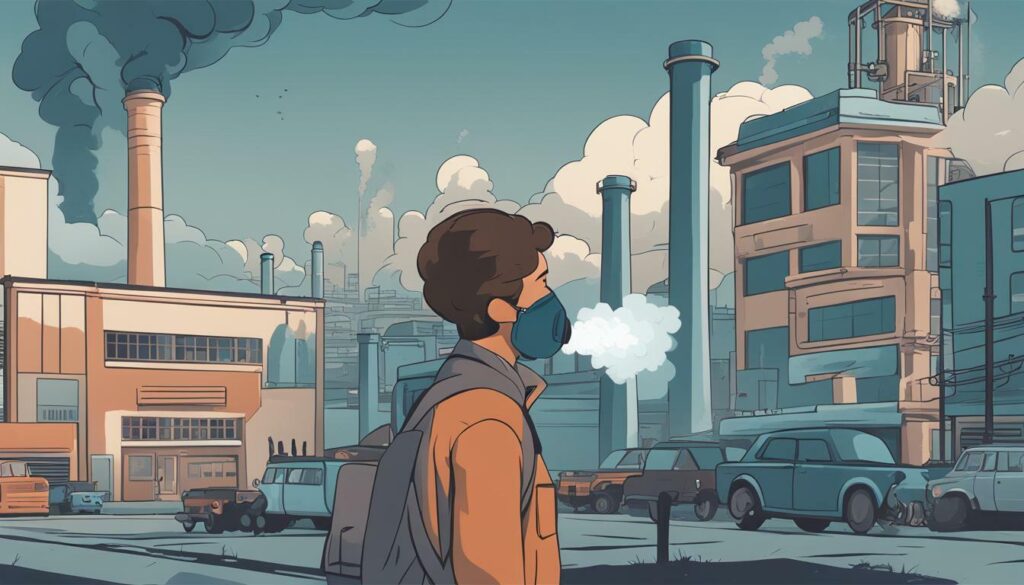

“Air pollution is responsible for 7 million premature deaths worldwide each year.”
The Health Effects of Poor Air Quality
Exposure to polluted air can have a range of negative health effects, particularly on the respiratory and cardiovascular systems. Short-term effects may include:
- irritation of the eyes, nose, and throat
- headaches
- dizziness
- fatigue
Over time, exposure to polluted air can lead to more serious health problems, including:
- chronic respiratory diseases
- cardiovascular diseases
- lung cancer
- stroke
- other health conditions
Vulnerable populations, such as children, the elderly, and individuals with existing health conditions, may be particularly susceptible to the negative health effects of polluted air.
Identifying Symptoms of Breathing Polluted Air
Knowing the symptoms of breathing polluted air is crucial to help you take necessary precautions. These symptoms can vary from person to person and depend on factors such as age, pre-existing health conditions, and the amount and type of pollutants in the air. Some common symptoms of breathing polluted air include:
- Coughing and wheezing: If you experience persistent coughing or wheezing, it could be a sign of respiratory irritation caused by pollutants in the air.
- Shortness of breath: If you find it difficult to breathe or feel out of breath, it could be a sign of high levels of air pollution in the environment.
- Eye, nose, and throat irritation: Exposure to pollutants can cause irritation and inflammation in your eyes, nose, and throat. Symptoms include itchy or watery eyes, a runny or stuffy nose, or a sore throat.
- Fatigue and dizziness: If you feel fatigued or dizzy, it could be a sign of carbon monoxide poisoning, which can result from breathing in polluted air from exhaust fumes or other sources.
- Chest pain: Exposure to high levels of air pollution can cause chest pain or discomfort, which can be a sign of reduced oxygen flow to the heart.
If you experience any of these symptoms, it’s important to seek medical attention as soon as possible.


Duration of Exposure to Air Pollution
The duration of your exposure to air pollution can play a significant role in determining the level of health risk you face. Short-term exposure to polluted air can cause immediate health effects, such as irritation of the eyes, nose, and throat. However, these symptoms are usually temporary and subside as soon as you move away from the polluted area.
On the other hand, long-term exposure to poor air quality has been linked to a range of serious health problems that can develop over years or even decades. This is particularly true for people who live in areas with consistently high levels of air pollution, such as industrial areas or cities with heavy traffic.
The longer you are exposed to polluted air, the greater your risk of developing chronic respiratory conditions, such as asthma and COPD. Long-term exposure has also been linked to an increased risk of heart disease, stroke, and lung cancer.
If you live or work in an area with consistently high levels of air pollution, it is essential to take steps to protect your health as best as possible. This might involve wearing a mask when outdoors or investing in an air filtration system for your home or workplace.
Remember: even if you can’t make immediate changes to your environment, taking steps to reduce the duration of your exposure to polluted air can still have a positive impact on your health in the long run.


Understanding the Time it Takes for Bad Air to Impact You
When it comes to air pollution, time is a critical factor to consider. The amount of time you are exposed to polluted air can have a significant impact on your health. However, the time it takes for bad air to affect you can vary depending on various factors.
Short-term exposure to polluted air can cause immediate symptoms like irritation of the eyes, nose, throat, and respiratory system. These symptoms usually disappear once you are no longer exposed to the polluted air. However, prolonged exposure to polluted air can have more severe effects on your health, leading to chronic respiratory and cardiovascular diseases.
It’s important to note that the time it takes for pollutants to affect you can depend on the type and concentration of pollutants in the air, your age, underlying medical conditions, and the duration and frequency of exposure.
For instance, individuals with pre-existing respiratory or cardiovascular conditions may be more susceptible to the harmful effects of air pollution, and the time it takes for them to feel the impacts may be shorter than in healthy individuals.
Additionally, the time it takes for pollutants to affect you will depend on how frequently and for how long you are exposed to them. For example, if you live in an area with high levels of air pollution and have had prolonged exposure, you may experience the effects sooner than someone who only spent a short amount of time in the same area.
Overall, understanding the time it takes for bad air to impact you is crucial in protecting your health. It’s essential to take preventive measures and limit your exposure to polluted air to reduce the risk of health complications.


The Importance of Prevention
Preventing exposure to poor air quality is essential to protecting your health and well-being. Here are some prevention tips to keep in mind:
- Avoid outdoor exercise during times of high pollution, such as during rush hour or on hot, sunny days.
- Invest in an air purifier for your home or workplace to remove pollutants from the air.
- Use public transportation or carpool whenever possible to reduce emissions from vehicles.
- Quit smoking and avoid exposure to secondhand smoke, as it can significantly impact your respiratory health.
- Regularly maintain your HVAC system to ensure proper air filtration and circulation.
- Limit the use of harsh chemicals and cleaners in your home, as these can release toxic fumes into the air.
By taking these preventative measures, you can minimize your risk of adverse health effects associated with poor air quality. Remember, small changes in daily habits can make a significant impact on your long-term health.


Strategies for Improving Indoor Air Quality
If you want to improve your indoor air quality and reduce the risks associated with breathing polluted air, there are several strategies you can follow. By taking preventative measures, you can improve your overall health and well-being.
Ventilation
Proper ventilation is critical for maintaining good indoor air quality. Ensure that your home has enough ventilation to allow for proper air circulation. Open your windows and doors regularly to allow fresh air to come in and remove stale and polluted air out. Additionally, consider installing an air ventilation system or air purifiers to help remove pollutants from the air.
Reduce Chemical Use
Many common household items such as cleaning products and air fresheners contain harmful chemicals that can contribute to poor indoor air quality. Try to switch to natural and organic cleaning products, minimize the use of air fresheners, and limit exposure to other chemical-containing items.
Avoid Smoking
Smoking inside your home can contribute significantly to indoor air pollution. If you or someone in your household smokes, consider quitting or finding a designated smoking area outside your home to minimize the impact on indoor air quality.
Regular Cleaning
Frequently clean your home to remove dust, pet dander, and other pollutants that can accumulate over time. Vacuum floors and carpets regularly, dust surfaces, and wash bedding and curtains often. This can help prevent pollutants from becoming trapped in your home’s air.
Control Humidity
To reduce the chances of mold and mildew growth, maintain proper humidity levels in your home. Use a dehumidifier if necessary, and fix any leaks or water damage promptly.


Choose Low-Emission Products
When purchasing furniture, flooring, and other home items, try to choose low-emission products that do not release harmful chemicals into your indoor air. Look for products that are labeled as “green” or “low-VOC.”
Keep Plants
Having plants in your home not only adds a decorative touch but can also help improve indoor air quality. Plants help purify the air by absorbing pollutants and producing oxygen. Consider adding a few low-maintenance plants throughout your home to help improve air quality.
The Role of Public Policies in Air Quality Improvement
If you’re concerned about the air quality in your city, you’re not alone. Millions of people around the world are affected by air pollution. Fortunately, there are steps you can take to protect yourself from the harmful effects of pollution.
First and foremost, it’s important to support policies that aim to improve air quality. These policies can take many forms, such as increased regulation of industrial emissions, investment in public transportation, and incentives for businesses to reduce their carbon footprint.
One important policy that can make a big difference is the Clean Air Act , which was enacted in the United States in 1970. The Clean Air Act gives the Environmental Protection Agency (EPA) the authority to regulate air pollution from both stationary sources (such as factories and power plants) and mobile sources (such as cars and trucks). Thanks to the Clean Air Act, air quality in the United States has improved significantly over the past few decades.
However, there is still more work to be done. Many cities around the world continue to struggle with poor air quality, and it’s up to individuals to take action to protect themselves and their loved ones. By supporting policies that aim to reduce pollution and advocating for clean air, you can make a difference.
Prevention Tips
Aside from supporting public policies, there are many steps you can take to prevent air pollution in your daily life. Some prevention tips include:
- Using public transportation or a bike instead of driving
- Reducing energy consumption in your home by turning off lights and electronics when not in use
- Avoiding the use of wood-burning stoves and fireplaces
- Using environmentally-friendly cleaning products
- Supporting local farmers and buying organic produce to reduce the use of pesticides
By taking these small steps, you can make a big difference in reducing air pollution and improving the quality of the air you breathe.


Seeking Medical Attention for Air Quality-Related Concerns
If you experience any symptoms of breathing polluted air, it is crucial to seek medical attention immediately. This is especially important if you are at high risk for health complications, such as children, the elderly, and those with pre-existing respiratory or cardiovascular conditions.
Common symptoms of breathing polluted air include coughing, wheezing, shortness of breath, chest tightness, and irritation of the eyes, nose, and throat. These symptoms may worsen over time with prolonged exposure to poor air quality.
Ignoring these symptoms can lead to serious health risks, such as lung cancer, heart disease, and stroke. Therefore, it is crucial to see a doctor immediately and get a proper diagnosis and treatment plan.


Remember, prevention is key in protecting your health from air pollution effects. But if you do experience any health concerns related to poor air quality, seek medical attention promptly to stay healthy and safe.
Conclusion
Now that you know how long it takes for bad air quality to affect you and the impacts of air pollution on human health, it’s important to take steps to protect yourself and your loved ones. Remember, the duration of exposure to air pollution is a key factor in determining the health risks associated with poor air quality.
Prevention measures such as reducing outdoor physical activity during high pollution days, using air purifiers, and keeping windows closed during heavy traffic times can help reduce exposure to polluted air. Additionally, improving indoor air quality through proper ventilation and avoiding the use of harmful chemicals can also make a difference.
Public policies and regulations play a crucial role in improving air quality for everyone. It’s important to stay informed and advocate for policies that prioritize clean air.
If you’re experiencing symptoms related to poor air quality, seek medical attention immediately. Don’t wait until it’s too late to seek treatment.
Remember, the negative impacts of air pollution on human health can be serious and long-lasting. By taking preventative measures and advocating for change, we can work towards a cleaner, healthier future for all.
FAQ
Q: How long does it take for bad air quality to affect you?
A: The effects of bad air quality can vary depending on several factors, including the individual’s overall health, the concentration of pollutants in the air, and the duration of exposure. In some cases, immediate symptoms such as coughing, wheezing, and shortness of breath may occur. Long-term exposure to poor air quality can lead to chronic respiratory conditions, cardiovascular problems, and other health issues.
Q: What are the health effects of poor air quality?
A: Poor air quality can have a range of health effects, including respiratory problems such as asthma and bronchitis, cardiovascular issues like heart attacks and strokes, and an increased risk of developing lung cancer. Prolonged exposure to polluted air can also worsen existing health conditions and contribute to premature death.
Q: How do you identify symptoms of breathing polluted air?
A: Symptoms of breathing polluted air can include coughing, wheezing, shortness of breath, chest tightness, headaches, dizziness, and fatigue. These symptoms may vary depending on the individual and the specific pollutants present in the air.
Q: How long can you be exposed to air pollution?
A: The duration of exposure to air pollution can vary depending on the individual’s location, occupation, and lifestyle. Some people may be exposed to polluted air for hours each day, while others may only be exposed intermittently. It is important to minimize exposure as much as possible to protect your health.
Q: How long does it take for bad air to impact you?
A: The time it takes for bad air to impact you can vary depending on the concentration of pollutants and the duration of exposure. In some cases, immediate symptoms may occur, while long-term effects may develop over time. It is important to take precautions to minimize exposure and protect your health.
Q: What are some prevention tips for maintaining good air quality?
A: Some prevention tips for maintaining good air quality include regularly checking and replacing air filters, using proper ventilation systems, avoiding smoking indoors, reducing the use of harmful chemicals, and staying informed about air quality in your area.
Q: What strategies can help improve indoor air quality?
A: Strategies for improving indoor air quality include keeping indoor spaces clean and free of dust and allergens, using air purifiers or filters, controlling moisture levels to prevent mold growth, and avoiding the use of products that release harmful pollutants.
Q: What is the role of public policies in air quality improvement?
A: Public policies play a crucial role in air quality improvement by regulating emissions from industries, promoting cleaner energy sources, implementing vehicle emission standards, and enforcing regulations to reduce pollution levels. These policies aim to protect public health and preserve the environment.
Q: When should you seek medical attention for air quality-related concerns?
A: If you are experiencing persistent symptoms such as difficulty breathing, chest pain, severe cough, or any other health issues that you suspect may be related to poor air quality, it is important to seek medical attention. A healthcare professional can evaluate your symptoms and provide appropriate guidance and treatment.
Q: Can prolonged exposure to air pollution have long-term health effects?
A: Yes, prolonged exposure to air pollution can have long-term health effects. It can contribute to the development of chronic respiratory conditions, cardiovascular problems, and other serious health issues. Minimizing exposure and taking preventive measures are essential to maintain good health.

